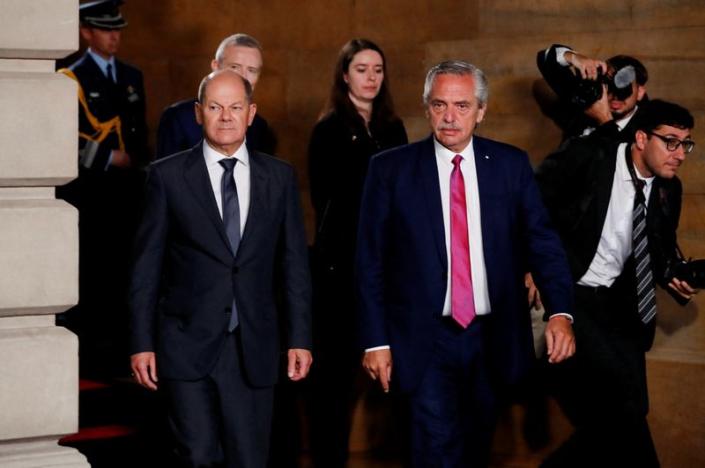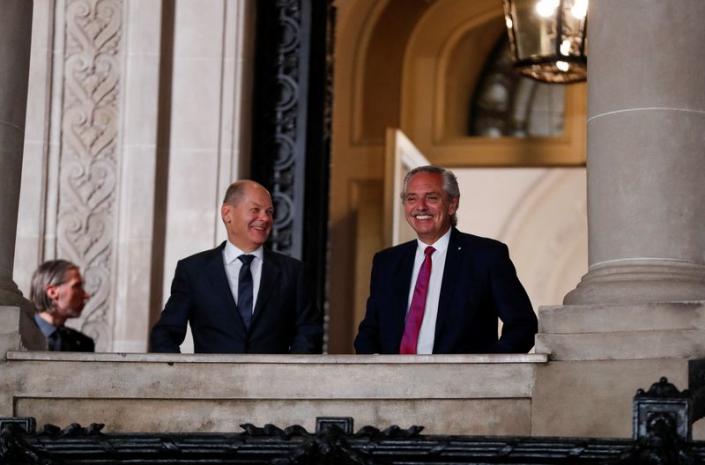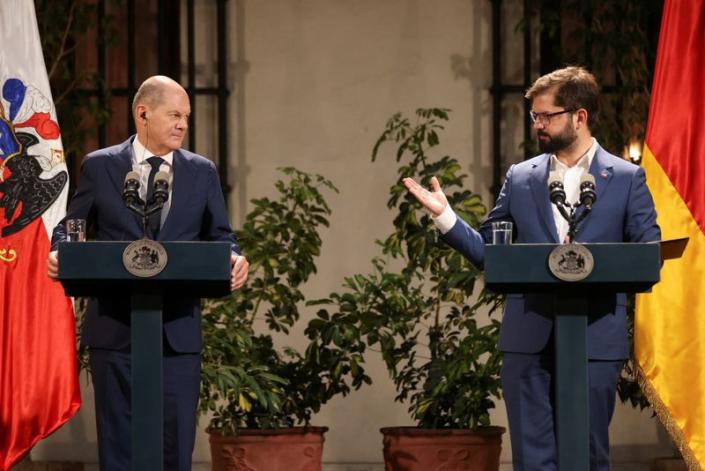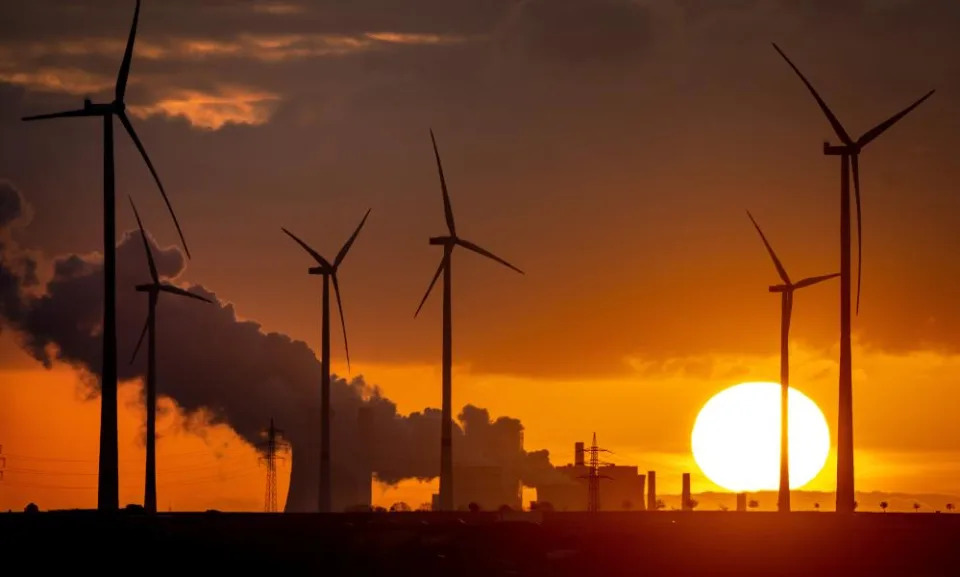Brazil's Bolsonaro applies for 6-month U.S. visitor visa

Former Brazil President Jair Bolsonaro, center, meets with supporters outside a vacation home where he is staying near Orlando, Fla., on Wednesday, Jan. 4, 2023. The capital uprising by Bolsonaro's supporters on Jan. 8, 2023 failed to overthrow Brazilian democracy and Bolsonaro flew to Florida, but millions of people in Brazil believe so strongly in Brazilian-style social conservatism that the movement will persist without its namesake, according to academics who study the Bolsonarita movement and members of the movement themselves.
DAVID BILLER
Mon, January 30, 2023
RIO DE JANEIRO (AP) — Former Brazilian President Jair Bolsonaro has filed a request for a six-month visitor visa to stay in the U.S., indicating he may have no immediate intention of returning home, where legal issues await.
The application was first reported by The Financial Times, citing Bolsonaro's immigration lawyer, Felipe Alexandre. Contacted by The Associated Press, the lawyer's firm, AG Immigration, confirmed the report.
Bolsonaro left Brazil for Florida on Dec. 30, two days before the inauguration of his leftist rival, Luiz Inácio Lula da Silva. The ceremony proceeded without incident, but a week later thousands of Bolsonaro's die-hard supporters stormed the capital and trashed the top government buildings demanding that Lula's election be overturned.
Bolsonaro is being investigated for whether he had any role in inciting that uprising. It is just one of several probes targeting the former president and that pose a legal headache upon his eventual homecoming, and which could strip him of his eligibility in future races — or worse.
For the first time in his more than three-decade political career as a lawmaker then as president, he no longer enjoys the special legal protection that requires any trial be held at the Supreme Court.
It has been widely assumed — though not confirmed — that Bolsonaro entered the U.S. on an A-1 visa reserved for sitting heads of state. If so, he would have 30 days from the end of his presidential term to either leave the U.S. or adjust his status with the Department of Homeland Security.
Meantime, the shape of his political future and his potential return to Brazil has been a matter of rumor and speculation.
Bolsonaro's calculus appears to be to distance himself from the radicals whose destruction in the capital could implicate him in the short term, with the aim of some day returning to lead the opposition, said Mario Sérgio Lima, a political analyst at Medley Advisors.
“He is giving it some time, staying away a bit from the country at a moment when he can begin to suffer legal consequences for his supporters’ attitudes,” said Lima. “I don’t think the fact of him staying away is enough. The processes will continue, but maybe he thinks he can at least avoid some sort of revenge punishment.”
Bolsonaro has been staying in a home outside Orlando, Florida, and video has shown him snapping photos with supporters in the gated community and ambling around inside a supermarket.
In the wake of the rampage in the Brazilian capital this month, a group of 46 Democratic lawmakers sent a letter to President Joe Biden demanding Bolsonaro’s visa be revoked.
“The United States must not provide shelter for him, or any authoritarian who has inspired such violence against democratic institutions,” they wrote.
Bolsonaro's son, a senator, told reporters at an event this weekend that he was not sure when his father would return to Brazil.
"It could be tomorrow, it could be in six months, he might never return. I don't know. He's relaxing,” Sen. Flávio Bolsonaro said.
Asked whether Bolsonaro has filed any request for documentation or help with visa processses, Brazil’s foreign ministry referred AP to U.S. authorities. The U.S. Citizenship and Immigration Services referred AP to the State Department, which has repeatedly declined comment to questions about Bolsonaro’s visa status in the U.S.











